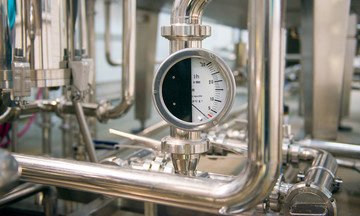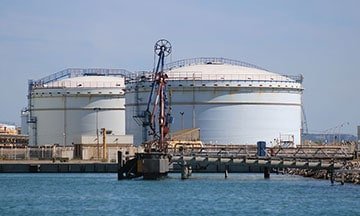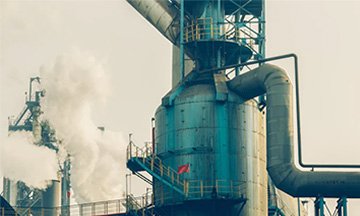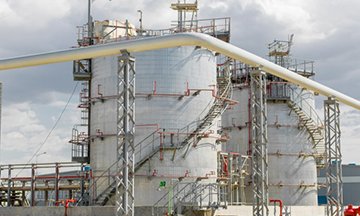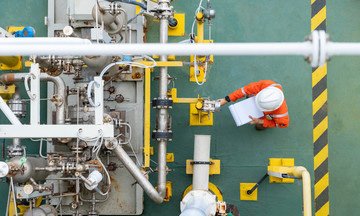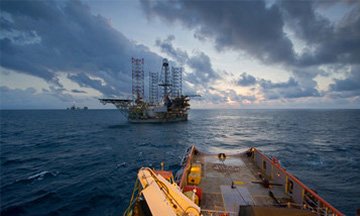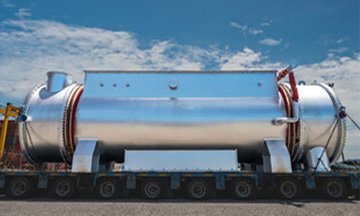Oil and Gas Fiscal Flow Metering System and Standards
| Date | Format | Duration | Fees | |
|---|---|---|---|---|
| 28 Apr - 02 May, 2024 | Live Online | 5 Days | $2250 | Register |
| 13 May - 17 May, 2024 | Live Online | 5 Days | $2250 | Register |
| 22 Jul - 26 Jul, 2024 | Live Online | 5 Days | $2250 | Register |
| 14 Aug - 16 Aug, 2024 | Live Online | 3 Days | $1750 | Register |
| 07 Oct - 11 Oct, 2024 | Live Online | 5 Days | $2250 | Register |
| 24 Nov - 28 Nov, 2024 | Live Online | 5 Days | $2250 | Register |
| Date | Venue | Duration | Fees | |
|---|---|---|---|---|
| 29 Apr - 03 May, 2024 | Victoria - Seychelles | 5 Days | $4950 | Register |
| 29 Apr - 03 May, 2024 | Dubai | 5 Days | $4750 | Register |
| 27 May - 31 May, 2024 | Dubai | 5 Days | $4750 | Register |
| 10 Jun - 14 Jun, 2024 | Dubai | 5 Days | $4750 | Register |
| 08 Jul - 12 Jul, 2024 | Dubai | 5 Days | $4750 | Register |
| 05 Aug - 07 Aug, 2024 | Paris | 3 Days | $4475 | Register |
| 12 Aug - 16 Aug, 2024 | Dubai | 5 Days | $4750 | Register |
| 09 Sep - 13 Sep, 2024 | Dubai | 5 Days | $4750 | Register |
| 14 Oct - 18 Oct, 2024 | Dubai | 5 Days | $4750 | Register |
| 28 Oct - 01 Nov, 2024 | Amsterdam | 5 Days | $5695 | Register |
| 10 Nov - 14 Nov, 2024 | Doha | 5 Days | $4950 | Register |
| 18 Nov - 22 Nov, 2024 | Dubai | 5 Days | $4750 | Register |
| 09 Dec - 13 Dec, 2024 | Dubai | 5 Days | $4750 | Register |
Course Overview
What is fiscal flow metering?
Oil and Gas Fiscal Flow Metering System and Standards refer to the procedures that govern the extent or range of liquid and gas flow. Simply put, this can be said to be the parameter in determining the quantity as well as the value of the delivery of petroleum products. In other terms, it has been referred to as custody transfer measurement. Ideally, when processed from their raw form into a refined state, liquid and gas are transferred, stored, and disbursed to the midstream sector, which is one of the oil and gas industry sectors. Thus, in the course of transferring these products, it is expedient for measurement to be carried out as this process constitutes a transfer of ownership.
What are metering systems?
This Zoe training will broaden the horizon of knowledge of participants by providing well-detailed, extensive information on various metering systems. This course will also cover information about standards concerning oil and gas. Also, this course aims at boosting the efficiency of technicians and providing them with the necessary technical know-how and skillset necessary to thrive in the oil and gas industry.
Course Objectives
The main objective of this course is to equip professionals with:
- Well-detailed information on the various metering systems and their application
- A critical espousal and highlight of the necessary and expedient principles governing the metering system employed in the oil and gas industry
- A comprehensive understanding of the know-how and application of a standard metering station of a fiscal nature
- Intensive training on the core aspects of fiscal flow metering systems and standards
- A simplified yet encompassing breakdown of the various terminologies employed in metering systems in the oil and gas systems
- The necessary technical know-how and skillset to enable technicians, operations managers to engage in this procedure
- The ability to decipher and analyze various standards applied in the fiscal flow metering systems in the oil and gas industry
- Enlightenment on the importance of employing standard fiscal flow metering systems and the associated risks of non-adherence
Training Methodology
Zoe Talent Solutions provides foundational courses on diverse subjects. These courses are handled by skilled professionals from the specific area or subject in question. Several techniques are employed by the tutors to ensure optimum participation as well as achievement of the end goal, which is the education of the professionals in training.
Techniques employed by the tutors range from quizzes, study groups, seminars, presentations, teaching with the aid of video and practical materials, onsite training, communication via several platforms between tutors and professionals in training.
Organisational Benefits
This training is not carried out in isolation. It is aimed at ensuring that organizations to which the professionals in training belong would benefit from the training in several ways:
- Optimum and efficient fiscal flow metering systems employed by employees to suit standard and conventional practice
- Enable the organization in question to stand out concerning the delivery of oil and gas to various petrol stations, thus creating a positive ripple effect on the revenue of the organization in question
- Ensure the professionals in training are equipped with the required information, therefore, reducing or eliminating the risk and penalties associated with non-adherence to the required standards
- Enlighten various organizations in the oil and gas industry on the rationale for these systems and standards, which is to ensure fair trade in the oil and gas industry
Personal Benefits
As regards professionals who engage in this training, numerous benefits are consequent upon completion, and they include:
- A broadened horizon of knowledge about various fiscal flow metering systems and standards
- Improved skillset and know-how, which would further ensure efficiency and optimum results in related tasks assigned to employees with regards to this subject
- Encourage further improved on-the-job training, learning, application of novel techniques, principles, and standards discovered in the course of the training
- The professional in training would contribute greatly to the revenue of the organization if the principles and standards learned are adhered to, thus, ensuring a boost in the employees’ confidence and readiness to work
- An avenue for technicians and operations managers who have no basic understanding of this field to be enlightened, which would in return increase the productivity of the professional training and the organization’s overall
Who Should Attend?
- Managers and top executives in various departments in the oil and gas industry
- Petroleum engineers, technical staff of engineering companies
- Prospective investors interested in the oil and gas industry
- Technicians and operations managers
- Personnel interested in various metering methods in the oil and gas industry
- Petroleum architects
- Specialist in the economics of petroleum industry
- Reservoir specialists
Course Outline
The course encompasses the various topics about oil and gas fiscal flow metering and standards:
Module 1: General Overview of Fiscal Flow Metering Systems and Standards
- Definitions of key terms
- Categories of various fiscal flow metering systems
– Differential pressure(DP) flowmeters
– Positive displacement flowmeters
– Turbine flowmeters
– Coriolis flowmeters
– Ultrasonic flowmeters
- Requirements of Fiscal Flow Metering Systems and Standards
Module 2: Basic Terminologies employed in fiscal flow metering systems and standards
- Automatic Custody Transfer Units (LACT Units)
- Pumping stations
- Meters
- Calibration
- Oil Sample System
- Instrumentation
- Flow Computers
- Backpressure systems
- Chemical Injection
- Troubleshooting
Module 3: Metering Principles
- Hydrocarbons
- Importance of measurement
- Proving
- Calculation
Module 4: Analysis of the Concept of Accuracy and Uncertainty
- Concise Analysis of the terms: accuracy and uncertainty
- The rationale for ensuring accuracy and highlighting uncertainty in the oil and gas sector’s fiscal flow metering systems.
- Optimum practices to be employed to ensure accuracy and take into cognizance uncertainty
- Calculation of uncertainty for oil and gas measurement
Module 5: Overview of Standards and its Application
- Definition
- Standard Organizations
– American Gas Association(AGA)
– American Petroleum Institute(API)
– International Organization for Standardization (ISO)
- Application of Standards
- Specific Standards that apply to meter types of various classes
Module 6: Categories of Fiscal Flow Measurement
- Production Measurement
- Process Plant Balances Measurement
- Well Allocation Measurement
Module 7: Fiscal Metering & Instrumentation
- Instruments employed in fiscal flow measurement
- Gas chromatographs
- Analyzers
Module 8: Fiscal Flow Procedures
- Operating procedures
- Reporting procedures
- Audit of meter stations by auditors
Module 9: Flow Metering Systems
- Composition of gas
- Pressure & Temperature measurement
- Calculation of flow
